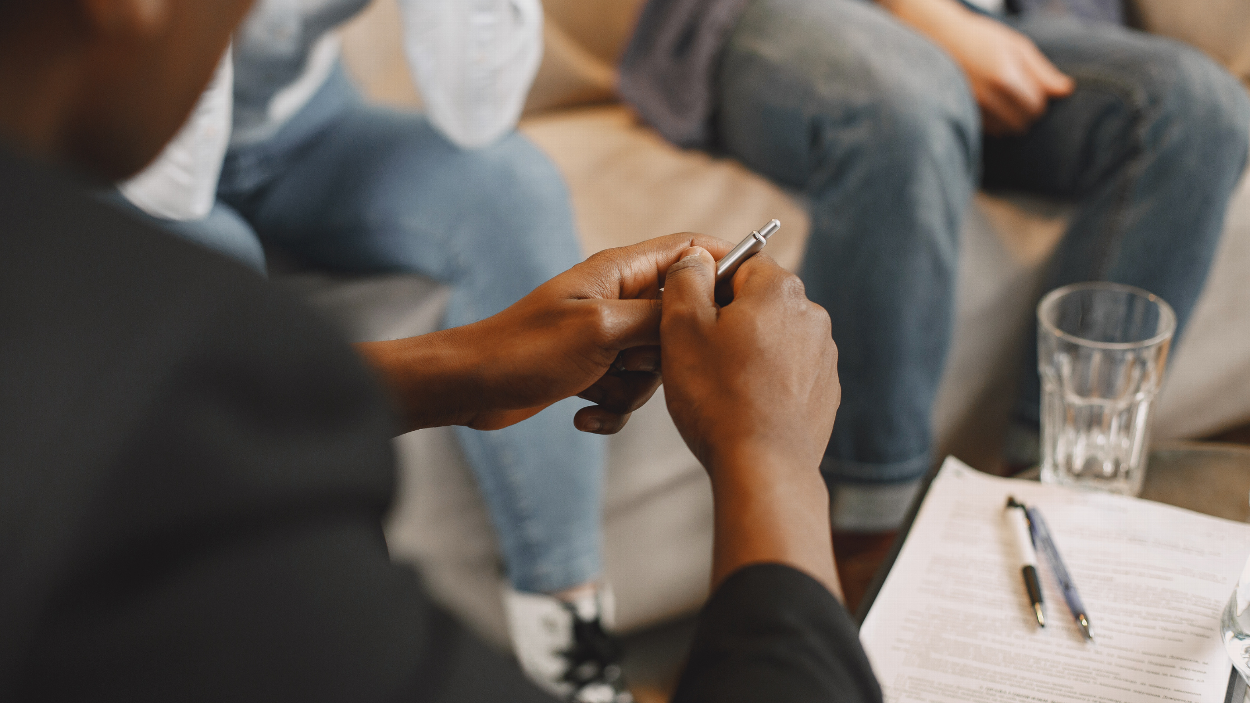Relationships are built on a foundation of a number of elements - love, trust and respect among them. Each day we focus on trying to strengthen these elements, adding to them if need be and aiming to never take anything away from them. If we start to feel taken for granted, or those who are important to us do, then over time the relationship can begin to weaken and turn sour. Those around us can feel like we are putting conditions on our affections for them, and like they cannot be their true selves or be truly human when around us.
Gratitude
Practising gratitude can help us deepen these feelings and bonds within relationships, particularly within our romantic relationships.
It is easy to say ‘express your gratitude' but how do we do that beyond a simple thank you?
Research has shown that taking a moment to define what your partner has done, and how it (and by extension, they) has met your needs.
For example: ‘Thank you for finding time to fill my car up with petrol, I've got an early start tomorrow and I was worried about whether I'd be able to find an open fuel station.' This shows that you have taken a moment to appreciate that they have gone out of their way to not only understand that you had a need, but that they have also gone out of their way to ensure that that need has been met. Gushing thanks is not necessary, most people simply want to feel appreciated and then move on, but something more in depth than ‘thanks for sorting the car' allows your partner to feel like you've truly acknowledged their actions.
Work to notice the things your partner does that are kind or thoughtful and acknowledge them. While going completely overboard with how often you express your appreciation can feel fake, regularly letting your partner know that you see the value they bring to your life can lead to deeper feelings of appreciation and deeper connection between partners.

The act of expressing gratitude towards your partner can help you feel more deeply connected with them, boosting the levels of the ‘love' hormone oxytocin in your blood, leading you to feel more loving feelings towards them. When both partners in a relationship are expressing gratitude and getting this hormone boost, it can immeasurably strengthen the bond.
Regularly practising gratitude within a relationship has also been shown to improve how comfortable partners feel about speaking up when they have concerns about the relationship, allowing a deeper level of communication between partners.
Conditional v Unconditional Love
In a relationship, problems can often start to occur when individuals feel like their partner's love is conditional on something. It may be them behaving a certain way, or depending on them never having an ‘off' day or needing support during a tough time.
Conditional love often doesn't feel like love at all. Putting restrictions, conditions and rules on how or even whether someone is worthy of your love can lead to the person on the other end feeling unworthy of love at all. This ‘fair weather' type of love often leads to a very superficial ‘lite' version of a relationship - if you are worried that at the very moment you need to lean on your partner they will bail on you, then the level of trust and connection is low, almost non-existent. Knowing that you cannot rely on your partner to support you in the moments of worry or stress can lead to feelings of stress, anxiety and even depression. This in turn can lead to deeper feelings of stress and anxiety, not knowing where or who to turn to.

In contrast, unconditional love is often considered the ‘gold standard' of love. It means that the giver loves you freely, in your good days and bad days, and it is offered rather than seen as one half of an exchange. It has no barriers, there is no question of ‘I will love you when you behave this way' or ‘I won't love you if you do this'. It is often what we are striving for on our wedding day and in our relationships with our children and closest friends.
Unconditional love means staying by your partner's side through thick and thin. Acknowledging their mistakes, but never withdrawing the promise of our love on the basis of these. It allows us to explore who we are, freely and in the knowledge that we have the backing of someone who never expects us to be perfect, accepting us ‘warts and all'.
Knowing that your partner loves you unconditionally deepens the connection you have, as it means you truly know that they love you for who you are, exactly as you are. It removes the pressure you may feel to change yourself for them. As many of us are aware, change should be for you, and not for someone else.

Setting Boundaries
It is important to remember that unconditional love should be mutual, it should be received with respect and reciprocated rather than as permission to behave badly within the relationship as ‘they have to put up with'. If one party is offering unconditional love but the other is not then it can lead to difficult power dynamics within the relationship.
Love is often used as justification for staying in an unhealthy partnership - how many times do we hear the question asked ‘why are you with them?' only for the reply to be ‘because I love them'.
No one wants to feel that their partner is offering them their love with strings attached, but it is equally important to have boundaries to determine what you class as acceptable and unacceptable behaviours. Discussing your boundaries with your partner at an early stage and more importantly, sticking to them means that everyone knows exactly where they stand. These discussions can be ongoing during a relationship, life experiences mean that boundaries may change and what was once considered acceptable behaviour to someone may now not be. The important thing to do is to ensure that the lines of communication between the two parties are open, and that you both feel safe and empowered to challenge each other. Utilising the services of a counsellor can help you to ensure these discussions are healthy and productive.
